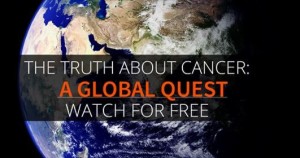
Many, dare I say most, are bound by the uninspected chains of their belief system.
It takes rare courage to look, actually look, and see what is there.
Only the very bravest and the very brightest attempt looking.
And most of them are distracted or shy away from the truth they observe.
Most are so far below the ability to look that they require lots of help to rise to that level.
They have been so badly harmed, so they believe, they daren’t look for fear that which is looked at will bite them, yet again.
Little do they know they are indestructible.
They cannot be hurt except by their agreement.
One must be willing to confront anything and everything, good and evil, if he would be free.
He must not resist being the effect of anything lest he become it.
He must strive always to attain his desired future reality and never lose sight of it.
Despite obstacles, distractions, dispersals and demotivations.
AUSTRALIA: ARCHAEOLOGISTS UNEARTH RUINS OF VIKING TRADE CENTER

Archaeologists excavating on the site of some recently discovered ruins on the northern coast of Western Australia, may have just made the greatest find in the history of the country: the remains an 11th century Viking settlement.
http://worldnewsdailyreport.com/australia-archaeologists-unearth-ruins-of-viking-trade-center/
They Fear Those With Knowledge
The Truth About Cancer

I am listening to this right now. I am learning heaps and having past learning reinforced.
Inflammation and cancer go hand in hand.
“Reduce inflammation and you prevent cancer from forming.” – Dr Russell Blaycock
“If you eat real food you are going to be eating an anti-cancer diet.” – Mike Adams
“Vegetables are our most important food in the fight against cancer.” – Cherie Calbom “The Juice Lady”
“There are two parts to healthy diet- one is avoiding the bad stuff, the other is taking advantage of the good stuff.” – Ocean Robbins CEO Food Revolution Network
Essiac Tea – a blend of herbs given her by an Indian Medicine man.
In an interview with Ty Bolinger for his series on The Truth About Cancer, Dr Mathias Rath says:
“During the first half of the twentieth century no less than 9 Nobel Prizes were awarded for vitamin research for the benefit of vitamins for human health.
“In 1963, the German government, under pressure of Bayer, launched what is called Codex Alimentarius Commission with the goal to make sure that vitamins and the benefits of vitamins for human health are being eliminated world wide.
“So you can see, it is not just you and us talking about cancer, there is a century long tradition of crime against human health.
“And when you follow that trek, a lot of the things we will be talking about today will become easier to understand for the people who watch this interview.:- Dr Mathias Rath
You really should do yourself a favour and watch this.
Video: The Massive Nuclear Crisis In The U.S. No One Talks About…
Now semi-decomissioned, radioactive waste continues to leak from its 177 underground tanks containing roughly 55,000,000 gallons of highly radioactive “heavy” water. This is likely the biggest U.S. nuclear crisis you have never heard of.
Admittedly, this Fukushima style facility (of which quite a few exist in the US) has only failed to contain 68 of its 177 tanks. This crisis continues to pollute the Colombia River today, and has gotten worse as whistleblowers continued to be fired.
http://yournewswire.com/video-the-massive-nuclear-crisis-in-the-u-s-no-one-talks-about/
Turmeric – The Spice That Prevents Fluoride From Destroying Your Brain

Fluoride’s neurotoxicity has been the subject of academic debate for decades, and now a matter of increasingly impassioned controversy among the general public, as well. From ‘conspiracy theories’ about it being first used in drinking water in Russian and Nazi concentration camps to chemically lobotomize captives, to its now well-known IQ lowering properties, to its ability to enhance the calcification of the pineal gland – the traditional ‘seat of the soul’ – many around the world, and increasingly in the heavily fluoridated regions of the United States, are starting to organize at the local and statewide level to oust this ubiquitous toxicant from municipal drinking water.
https://greenmedinfo.com/blog/spice-prevents-fluoride-destroying-your-brain%60
Unvaccinated Children Overall Healthier
Check out the statistics on it…
http://www.vaccineinjury.info/survey/results-unvaccinated/results-illnesses.html?
This Country Said No To Mammography Screenings – And You Will Too When You Learn The Truth!
Last year the Swiss Medical Board conducted a review of mammography screening and their findings exposed something rather unexpected. They assessed that these screenings cause more harm than good. In fact, via their studies, they found that the screenings really only saved 1 in 1000 women who died. On the contrary, the failure of the process, or unsafe side effects, were the actual greater concern.
http://edgytruth.com/2015/03/08/mammography-screening/
LEAKY GUT: THE MAST CELL (HISTAMINE), CROHN’S DISEASE CONNECTION
Eliminating foods does not heal. Nutrition does.
http://thelowhistaminechef.com/leaky-gut-the-mast-cell-histamine-crohns-disease-connection/

